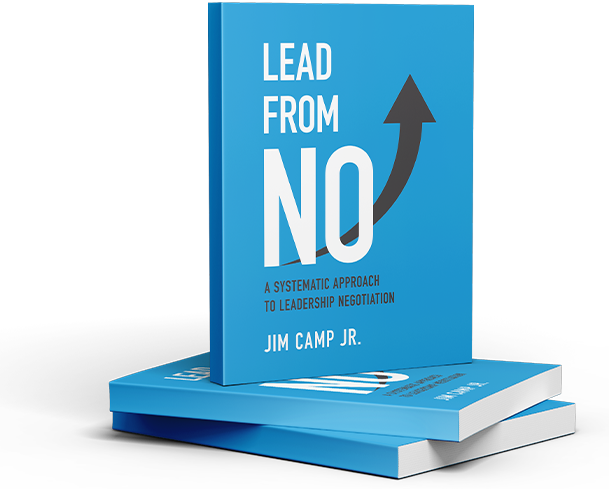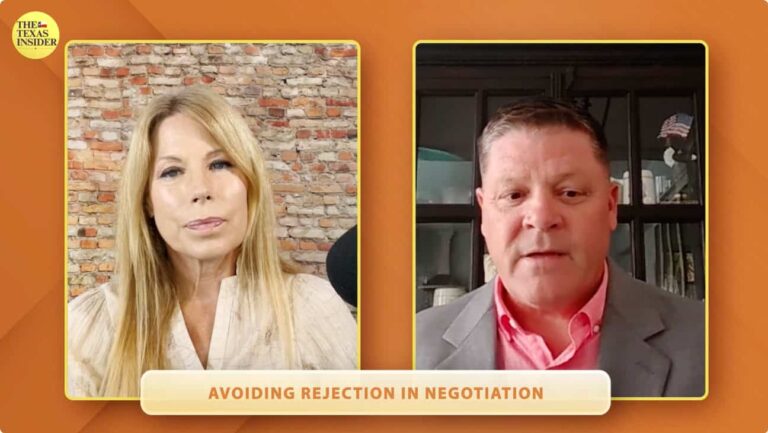Never negotiate against who… or what? You may be thinking it’s a corporate raider, the government, your boss, or your partner.
Most people won’t believe this, but the worst person you can negotiate against is yourself.
You negotiate against yourself when you think that you know:
- what the other side is thinking
- what the other side believes
- what the other side will do next.
Most times, you are just making assumptions.
When a negotiator makes assumptions, they may actually be negotiating against themself. And you never want to do this.
In most cases, you’ll be worse off than when you started.
How do I negotiate against myself?
You negotiate against yourself when you stay in your own head. You assume that your ideas and beliefs are the same as your respected opponents.
Why? There is a very, very, small chance that the person you’re negotiating with thinks exactly the way you do.
The reason is that your assumptions are based on your experiences and beliefs, and biases, which certainly are not the same as the other person’s.
So the most effective way to negotiate is to drop all of your assumptions. Drop everything you believe about what the other person should be doing or is thinking.
Instead, make it your negotiation objective to discover exactly what’s in their head, not your head.
Case Study: The dream house
You’ve been planning to move your family to a bigger home. After scanning the real estate offerings in your neighborhood, you find the perfect house. It’s the right neighborhood, the right size, the right yard – and at a great price.
The only problem is that the seller wants a fast close, and you’re afraid you won’t be able to sell your house in time.
You put your home on the market, and because you need the cash, you immediately assume that all the prospective buyers are also focused on price.
While you think your house is worth more than $500,000 and the market supports that, you forget that number. Worrying about the quick close you say, “I’m willing to accept a lower offer because everybody wants to pay less.”
So you put the house on the market for $475,000. The next day, you get an offer for your asking price and you’re very happy because it sold fast. You believe it would have taken weeks to get $500K.
Or so you think….
Here you are assuming that money was most important to the buyer.
What you learned after the fact is that the buyer also was looking for a house in your neighborhood and your house was perfect. In fact, it was so perfect that they would have paid over the asking price.
Since you thought that price was the most important thing to everyone – just like you – you may have given away $25K – or more.
That’s an example of assuming or projecting your thoughts onto someone else.
When you do this in a negotiation, you are negotiating against yourself. People with strong negotiation skills never negotiate against themselves.
If you listed at market price and the buyer didn’t want to pay that, they would have said “no” and offered a counter.
Because you didn’t give them the opportunity to pay the market price, you just lost it immediately.
Case Study: The dream job
There’s a sales job opening with a Triple-A baseball team in your town. You don’t apply for that job because you’ve recently moved into this area from another state. You think they’ll clearly pick someone “local” who has all the contacts and connections in the area.
Looking at the facts, the job is open now so someone left it. You don’t know anything about past employees or their qualifications. How would you know anything about them? How would you know what this boss wants?
You are negotiating against yourself. In this case, you may be losing out because you assume the Triple-A team thinks like you.
More examples
- It’s why the best dancer is sitting at a table. (Assumption: Everyone thinks, “That dancer must know I’m not good and he’ll say no if I asked him to dance.”)
- It’s why you haven’t raised your fees to XWCorp. in 5 years. (Assumption: XWCorp. will find a cheaper vendor, and I’ll be out of a job.)
- It’s why you don’t invite your boss to your home. (Assumption: He’ll know that I have a lot of money and I won’t get the raise.)
- It’s why you have those big car payments. (Assumption: How could I, the boss, drive into the parking lot in that old car, and still have people respect me?)
It’s circular thinking. Our assumptions help us avoid hearing a No. And being afraid of a No encourages us to make more assumptions.
The best way to avoid all assumptions is to blank slate before a negotiation. You have to consciously block out past thoughts, biases, and guesses that come from inside yourself or your perception of the other side.
Never “assume” that the other person has the same experiences, biases, and beliefs that you do because they never do.





